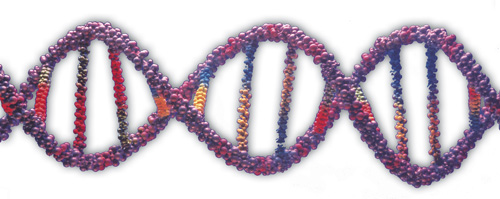|
[home] [subscription form] [cover story] [introduction] [people and places] [medical spa destinations]
|
||

VOLUME 2007 chapter 6
Beta Carotene Supplementation Benefits Aging Mens’ Brains
In that oxidative stress contributes to age-related cognitive decline, antioxidant supplementation has been found to protect the brain. Francine Grodstein, of Harvard Medical School, and colleagues found long-tern benefits for men taking beta carotene supplements (50 mg every other day) for fifteen or more years. Long-term beta carotene supplementation was associated with a significantly higher score on tests of general cognition and verbal memory. Because beta carotene is converted into vitamin A in the body, the team suggests that beta carotenes exert their protective benefits on cognition by preventing the build-up of plaques associated with beta-amyloid deposits, which are associated with loss of cognitive function and an increased risk of Alzheimer’s Disease.
[Grodstein F, Kang JH, Glynn RJ, Cook NR, Gaziano JM. “A Randomized Trial of Beta Carotene Supplementation and Cognitive Function in Men: The Physicians' Health Study II.” Arch Intern Med. 2007 Nov 12;167(20):2184-90.]
Remarks Dr. Goldman: “Upwards of 12 million people in the United States and European Union suffer from Alzheimers. In the US alone, the disease costs more than $100 billion annually. This is the first study that looks at long-term antioxidant supplementation and how it can avert the cognitive decline so common in the aging population. It shows that beta caraotenes should be considered as a critically important preventative measure to ward off cognitive decline, as their supplementation is both safe and cost-effective over the long-term.”
World’s First Cloned Embryo from A Monkey – Are Humans Next?
Shoukhrat Mitalipov, of the Oregon Health and Science University (Beaverton, OR USA) and colleagues have created the world’s first cloned embryo from a monkey. Using somatic cell nuclear transfer (SCNT), the same method that led to Dolly the Sheep and other genetically duplicated animals such as mice, pigs, cats, cows, and dogs, this marks the very first time a cloned primate has been successfully produced. Dr. Mitalipov harvested 304 eggs from 14 female monkeys, and produced 35 early-stage embryos from the SCNT procedure; this in-turn led to two lines of self-dividing embryonic stem cells. The researchers comment in their published paper that: “Our results represent successful nuclear reprogramming of adult somatic cells into pluripotent embryonic stem cells and demonstrate proof-of-concelt for therapeutic cloning in primates.”
[J. A. Byrne1, D. A. Pedersen, L. L. Clepper1, M. Nelson, W. G. Sanger, S. Gokhale, D. P. Wolf & S. M. Mitalipov. “Producing primate embryonic stem cells by somatic cell nuclear transfer.” Nature advance online publication 14 November 2007.’]
Comments Dr. Klatz: “Dr. Mitalipov’s breakthrough research paves the way for cloning of human cells for use in medical research and therapeutics. No longer do scientists need to harvest embryos to use in stem cell therapies; soon they will be able to be created in the laboratory without the ethical dilemmas currently plaguing stem cell therapeutics.”

